
The Dutch businessman behind a planned one-way trip to Mars, which has received a flood of applicants from China, has dismissed accusations that the project is a scam.
Mars One has been promoted as a manned mission to establish a human colony on the red planet.
Anyone who fits the physical requirements can apply for the trip, with organizers expected to whittle the pool down to 24 to 40 candidates who will get training before a vote by television viewers will decide the four who will make the trip in 2023.
"Our plan is very complicated, but we knew that when we started," Bas Lansdorp, co-founder of the Mars One project, said in an e-mail to China Daily on Monday. "We are committed to landing humans on Mars in 2023. "With all plans of high ambition and complexity, there is a risk for delay," he said, but insisted the project is currently on schedule.
His comments came after Chinese media reports questioned the feasibility and legitimacy of the project.
Guangzhou Daily reported on Monday that the headquarters of Lansdorp's nonprofit organization is in a rented house with just one employee. "Mars One is registered at my home address because our office is in a Regus flexible workspace office," the e-mail response said, referring to the Luxembourg-based office-furniture manufacturer.
The paper also claimed Mars One has already generated more than $1 million in nonrefundable application fees.
According to the project brochure, applicants pay an administration fee based on their country's per capita GDP. Chinese applicants pay only $11.
Lansdorp also confirmed that at least 78,000 people worldwide, including about 10,000 from China, had submitted applications worldwide as of May 7.
A businessman from Dujiangyan, Sichaun province, who applied for a spot, also dismisses the concerns. "I don't understand why there are so many people questioning this project," Ma Qiang said. "It's an interesting project, and I'll keep an eye on its progress."
The 39-year-old said other applicants he knows also are optimistic about the project, adding that the nonrefundable admission fee is clearly stated on its official website.
"Pay $11 to get the chance of showing myself in front of the world, that's worthwhile," Ma said. "Whether the trip can make it or not is not that important to me."
In late April, Mars One chose Shanghai as the site of its second application-related news conference, after New York City.
Lansdorp said it is because he believes many Chinese, including children, are interested in being astronauts, especially as China had sent its own "taikonauts" into space.
Still, the project has its skeptics.
Pang Zhihao, a space flight expert, has said the trip to Mars sounds more like a commercial than a serious project.
The astronomical cost, the long voyage in space that will cause acute bone loss and muscle atrophy, and the severe environment on Mars - a frigid, barren planet whose thin atmosphere cannot support human life - will make the trip difficult.
The successful four candidates "will die there if they can't fly back. This is like euthanasia," he added. "If we watch this as a live show, it's cruel."
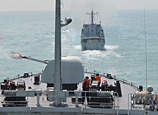

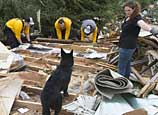
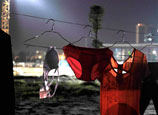

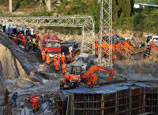



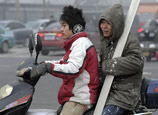






 China’s weekly story
China’s weekly story
(2013.5.11-5.17)


![]()
